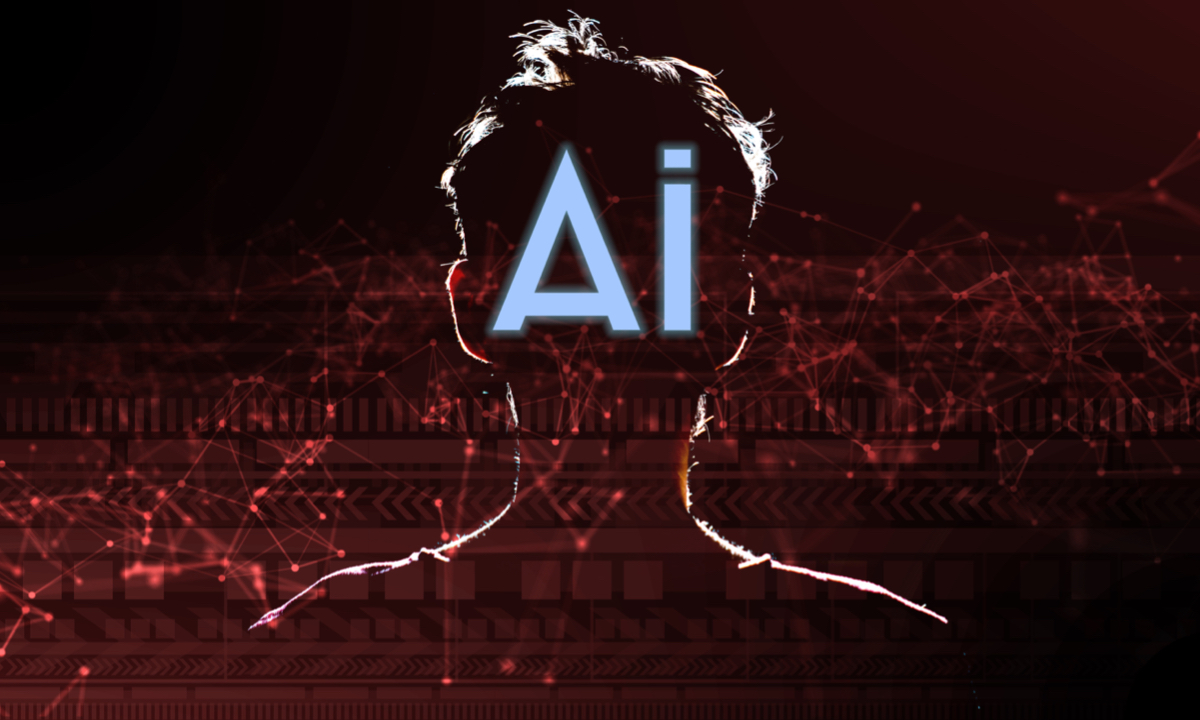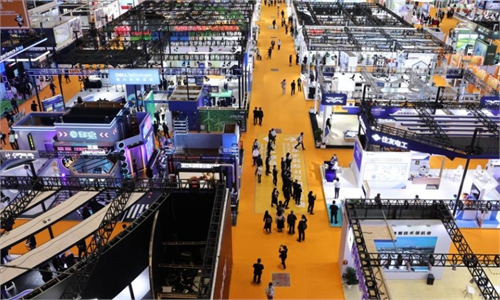
AI technologies Photo: VCG
The inaugural China Digital Human Conference is exploring the development of the digital human industry, focusing on advancing artificial intelligence-generated content (AIGC), intelligent agents and embodied intelligence to drive innovation, enhance the ecosystem, and ensure security, maintaining China's leadership in the field.
Hosted by the Internet Society of China, the two-day conference, which has the theme of digital human applications and the future, opened in Beijing on Monday.
It features an opening ceremony, multiple thematic forums, industry competitions and ecosystem activities. Key forums will cover topics like AIGC innovation, AI-powered digital human development, media innovation, security and industry investment.
"Currently, the broadcasting field is where digital humans are most widely used. Resources like announcers and scriptwriters are limited, but digital technology greatly expands their application. This technology holds vast potential in e-commerce, entertainment and education," Liu Gang, chief economist at the Chinese Institute of New Generation AI Development Strategies, told the Global Times on Monday.
An AIGC company named Hui-tun based in Shenzhen, South China's Guangdong Province, has launched a "digital human cloning livestream system" mainly for e-commerce and digital education, a representative of the company told the Global Times on Monday.
Users create avatars by recording green screen videos and uploading text, with AI generating their voices. The system enables seamless video production with real-time interaction and prices ranging from 1,980 yuan ($271.23) to 26,800 yuan, according to the representative.
"We offer digital human services on platforms like Taobao, and interest has surged over the past couple of years. We have more than 2,000 clients now. It's clear that digital humans are becoming a major trend," the representative said.
"This conference highlights the growing attention the digital human industry is receiving across sectors, with strong government support playing a crucial role," Liu Gang, chief economist at the Chinese Institute of New Generation AI Development Strategies, told the Global Times on Monday.
"In the early stages of industrialization, as the market develops, government backing is essential. By creating application scenarios in areas like radio and media, the industry benefits from a positive feedback loop. Policies that encourage innovation while expanding demand are crucial for driving growth," Liu added.
The conference includes key industry activities such as the release of reports on digital human development and applications, investment partnership meetings, discussions on standards and the launch of pilot programs and exhibitions.
Liu noted that China is on par with the US in the digital sector, particularly excelling in industrial applications. "Companies like SenseTime and Tencent have been active in digital tech for years, with iFlytek launching relevant products as early as 2001. This underscores China's strong leadership in digital industrialization," he said.
This marks not only the beginning of a major industry but also an effective way to optimize resource allocation.
"In the future, we can expect larger-scale development and new regulations governing the use of digital humans," according to Liu.



